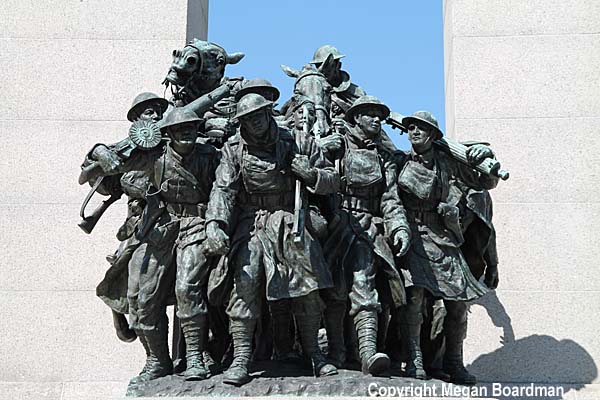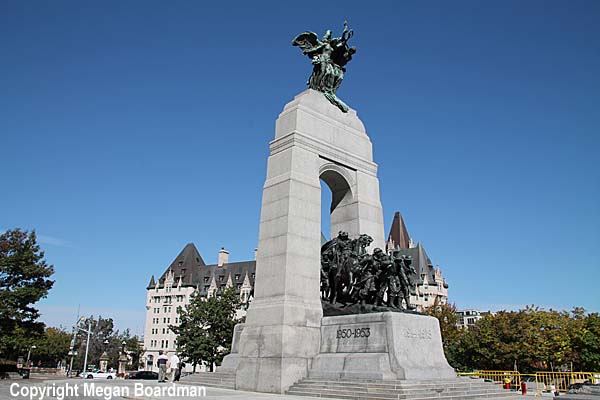|
The Canadian National War
Memorial occupies a site across Wellington
Street from the Houses of Parliament and not
far from the Chateau Frontenac. It was
originally designed to commemorate those who
gave up their lives in World War One but over
the years it has been rededicated to include
those who fought in the Second World War and
the Korean War. In 2000 the Tomb of the
Unknown Soldier was added to the site.
The memorial was designed
by the British sculptor Vernon March following
a competition launched in 1925. The
Veterans Affairs Canada website says that
Vernon's proposal was to create what he
called, " ... 'The Great Response of
Canada', represented by uniformed figures
from all services passing through a
granite arch. The idea, March wrote, was
'to perpetuate in this bronze group the
people of Canada who went Overseas to the
Great War, and to represent them, as we of
today saw them, as a record for future
generations...' There was to be no
suggestion of glorifying war."
Vernon died in 1930 before
the figures were completed but the work was
finished by his brothers and sister at their
foundry in Hampshire. The completed figures
were apparently displayed in London's Hyde
Park for 6 months in 1933 while work was
completed on the granite arch. The arch
was built by E.G.M. Cape and Company of
Montreal. The memorial was completed in time
for the visit of King George VI in 1939 and he
unveiled it at 11 o'clock on May 21.

|

